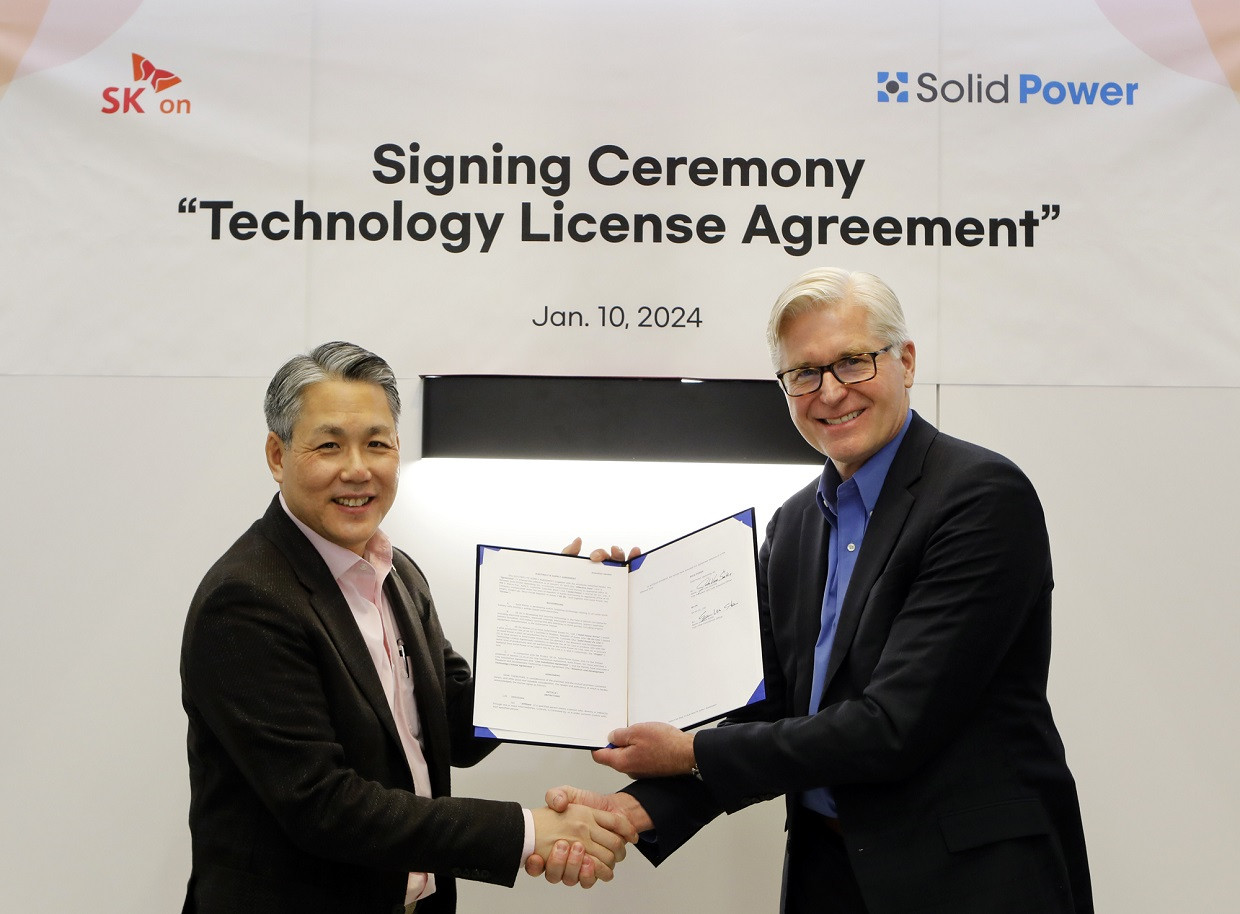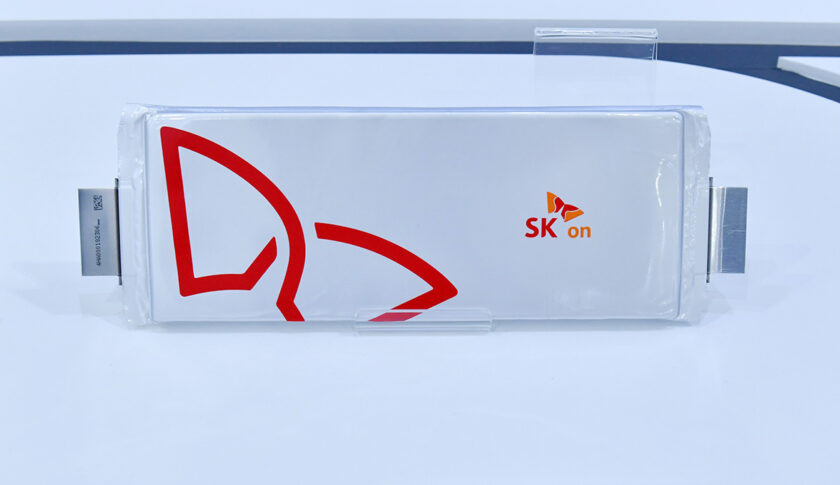SK On to innovate lithium batteries with polymer electrolytes
Battery maker SK On recently announced the successful development of a polymer electrolyte for lithium metal batteries, in collaboration with a research team led by the late Professor John B. Goodenough from the University of Texas.
The novel polymer electrolyte SIPE (single-ion conducting polymer electrolyte) has been developed together with with Professor Hadi Khani, a Research Assistant Professor who worked in John B. Goodenough group. It is expected to contribute significantly to improving solid-state battery performance and accelerate the development of all-solid-state batteries.
Since 2020, Nobel laureate Dr. Goodenough had been working with SK On on the joint development of solid electrolytes for lithium metal batteries until his passing in June last year, after which Professor Khani took over the research team.
Polymer electrolytes are considered as the next-generation solid battery materials with low cost and easy manufacturing. However, they have lower ionic conductivity compared to oxide and sulfide-based electrolytes, which means they typically operate only at high temperatures of 70-80°C. This has been a key limitation in their application in lithium batteries so far.
SK On claims that the SIPE overcomes this limitation by improving the ionic conductivity and lithium-ion transference number. Compared to existing polymer electrolytes, SIPE has increased room temperature ionic conductivity by approximately ten times (1.1×10-4S/cm) and the lithium-ion transference number from 0.2 to 0.92, nearly a fivefold increase.
The company notes that about tenfold increase in ionic conductivity enables battery operation at room temperature and ensures high-speed charging performance and fire safety. Experimental results have shown that batteries applied with SIPE maintain 77 percent of their discharge capacity during high-rate charging and discharging (2C) compared to low-rate charging and discharging (0.1C).
Solid electrolytes generally suffer from significant capacity loss during high-rate charging due to low ionic conductivity, but SIPE minimizes this limitation, according to SK On. The stability of the solid electrolyte interphase (SEI) has also been improved to suppress dendrite formation.
Lithium metal batteries can significantly increase energy density by using metal lithium instead of graphite as the cathode. However, resolving the persistent dendrite issue is essential for commercialization.
"Based on the results of this research, we expect to accelerate the development of solid-state batteries applying polymer electrolytes," said Kim Tae-kyung, Head of SK On's Next Generation Battery R&D Office. "SK On will seize growth opportunities in the next-generation battery field by leveraging our competitive edge in new material technologies", he added.
The South Korean battery firm is currently developing two types of all-solid-state batteries - polymer-oxide composites and sulfide-based batteries. The goal is to produce pilot prototypes in 2025 and 2026, respectively, and commercial prototypes in 2028 and 2029.
The sulfide-based next-generation battery pilot plant, currently under construction at the company's Battery Research Institute in Daejeon, South Korea, is expected to be completed in the second half of next year.























